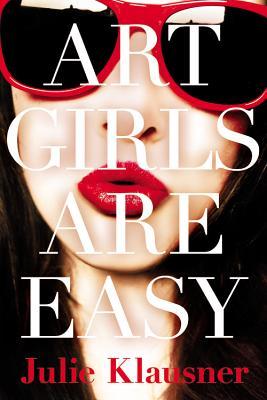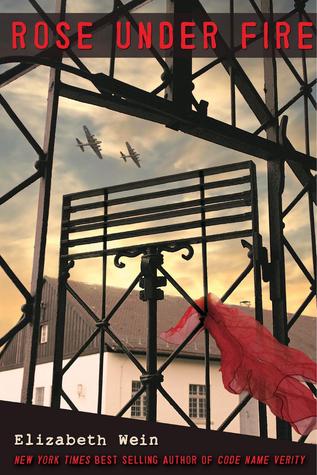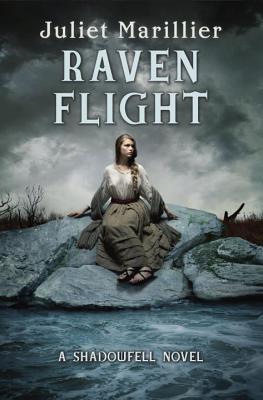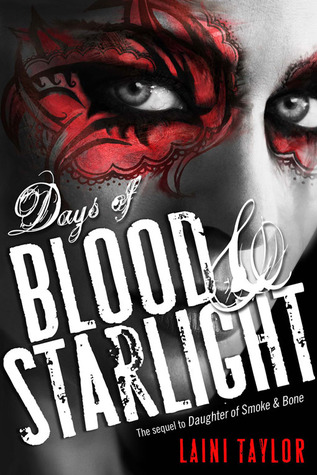 Tags: young adult, contemporary, summer camp, art, friendship, sex
Summary
Tags: young adult, contemporary, summer camp, art, friendship, sex
Summary
Fifteen-year-old Indigo Hamlisch is an art prodigy looking forward to her last summer at the Silver Springs Academy for Fine and Performing Arts for Girls. But her BFF Lucy Serrano is a C.I.T. this year, and that means she doesn't have to hang out with Indigo and the other campers anymore: she can mingle with the counselors -- including Indigo's scandalous and unrequited crush, paint-splattered art instructor Nick Estep. But it's not like anything is going to happen between Lucy and Nick... right?
As Indy becomes more and more paranoid about what's going on between her best friend and her favorite counselor, Indy's life -- and her work -- spin hilariously out of control. Funny and bold, Art Girls Are Easy is a comedy of errors filtered through the wry, satirical eyes of a girl who's been there, done that, and is just looking for a little inspiration. [summary from Goodreads]
Review
The first line of this book reads: “Indigo Hamlisch stared out of the window of her father’s gray Mercedes Coupe and thought about sex.”
Personally I find this opening tasteless, like it’s attempting to be shocking and edgy but failing miserably, kind of like the wannabe screaming vulgar things at an intimate concert in an attempt to be cool and being met with dead silence by the much classier crowd. However, after suffering through the whole book, I duly acknowledge the utter appropriateness of this opening line: it perfectly represents how unsuccessfully the book attempts to discuss issues of sexuality, body image, friendship, art, inspiration, and privilege. On top of that,
ART GIRLS ARE EASY had a jumbled plot and weak character development. All in all, a hot mess.
ART GIRLS ARE EASY wants to be cool. It wants to be the hip new thing that people are talking about, the story that owns criticism and commerciality, the trend that turns people’s thinking upside-down. Unfortunately, it had no idea where to begin doing so. What is the focus of this book, anyway? The jacket synopsis claims that it’s about Indigo and Lucy’s changing best-friendship, but the complexities of this new chapter in their lives hardly appear. Every once in a while, Lucy deigns to come find Indy, they exchange sweet nothings for a few lines, and then Lucy dashes off, leaving Indy behind to feel inferior and insecure.
In theory this is what friends drifting apart is like—but the drifting apart needs to be apparent in the harmful way they interact with each other, to show an unhealthy relationship. This book is so confused about whether or not Lucy is the villain that it tries to do a little of everything, with (predictably) poor results: for 90% of the book, we’re led to believe that Lucy is the bad and selfish friend who is just using the less attractive Indy to bolster her own self-esteem, but then apparently their misunderstandings are cleared up in a matter of a few pages at the end, Lucy’s attractiveness is balanced out by Indy’s far superior artistic talent, and Lucy and Indy go skipping off into the sunset. Huh? This is a fine ending ideally, but little exists in the book to convince readers of the strength and veracity of their friendship.
In fact, Indy and Lucy’s friendship rollercoaster takes a side-seat to the main spectacle that is Indy falling apart due to her insecurities. Scenes of Indy eating her feelings, lashing out at others, and even hurting herself could’ve been a moving reflection on adolescent self-esteem. I mean, this is serious stuff! But apparently Indy’s behavior is invalid because her perfect best friend never wavered in her loyalty. Um, what? Are we not going to discuss how, sadly, too many wonderful girls like Indigo will also have body image issues and thoughts of self-mutilation? Are you
really going to send the message that as long as the insecure girl is loved by her attractive, nice, and perfect best friend, everything is going to be fine?
But perhaps most infuriating of all—if such a thing can be decided from the myriad choices we have—is how
ART GIRLS ARE EASY makes no acknowledgment of the way privilege works in the characters’ lives. Silver Springs is a summer art camp that will make your university look like an overpriced homeless shelter. Throughout the book, characters continuously flaunt their privilege to get their way. They discuss how they’ll use their parents’ money to get the camp to fire a teacher, their parents’ connections to nab them a starring role in such-and-such production alongside Meryl Streep. They acknowledge how they only go to camp in order to make the connections that will get them the careers they want. It’s like Harvard for artsy high schoolers, and the book does not even try to comment on the disgusting excess that is the privilege here. No character is immune from the benefits of privilege—including Indigo. The most the book says about the glutton of privilege that exists in the book is a throwaway passage at the end:
“In no way did [Indigo’s] dad’s money talk negate the sense of accomplishment she felt around her piece. But, she figured, his donation was probably relevant to her Fairness Committee verdict. For the first time, she felt she had a better insight into the machine that kept this place running. This odd, terrible, wonderful place.”
That’s it. No lesson learned about privilege. The book totally passed on the opportunity to open readers’ eyes up to the existence of privilege in our lives and the extreme social stratification that results.
The very fact that
ART GIRLS ARE EASY so desperately tries to be cool upends any promise it had of being a halfway decent story. Its faux-edginess is only outdone by its inexcusable misunderstanding of teenage thoughts and feelings. And its unquestioning attitude towards privilege—unacceptable in today’s socioeconomic situation—is the rotten cherry on top of a shapeless, flavorless cake with all the nutritional content of a vat of high fructose corn syrup.
Poppy / May 7, 2013 / Paperback / 240pp. / $16.00
e-galley received from publisher and NetGalley for review.
 Tags: young adult, dystopian, sci-fi, LGBT, POC, art
Tags: young adult, dystopian, sci-fi, LGBT, POC, art


















